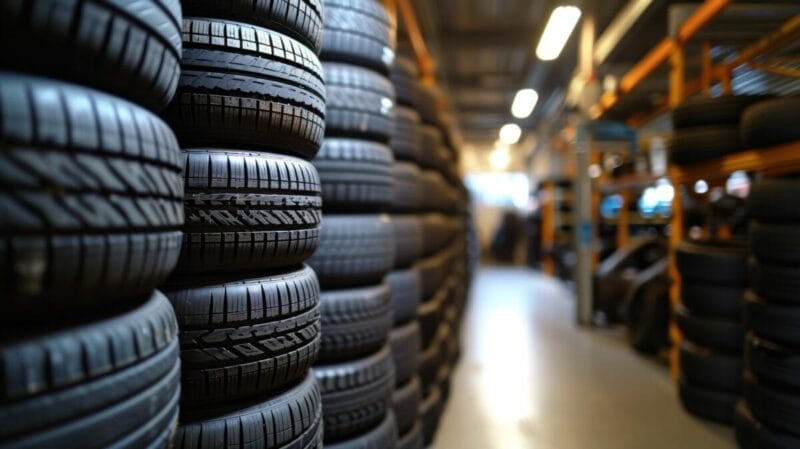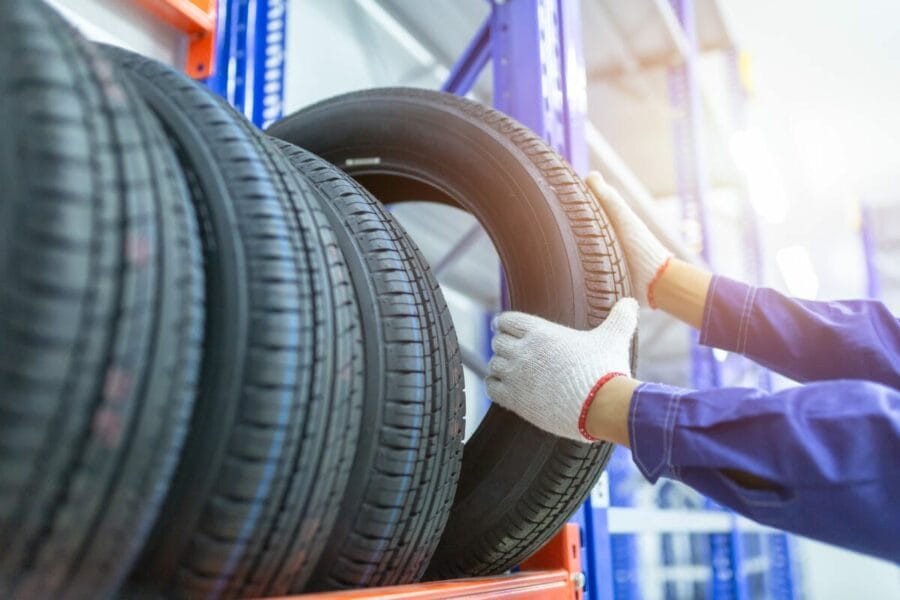What Are Tires Made Of?

Introduction to Tire Composition
Tires are a crucial component of any vehicle but what are tires made of? Providing the necessary traction and support for safe and efficient driving. The composition of tires plays a significant role in their performance, durability, and overall quality. Understanding the materials used in tire manufacturing and the intricate production process can provide valuable insights into the factors that contribute to a tire’s functionality and longevity.
Understanding the Importance of Tire Composition
The composition of a tire directly impacts its performance in various conditions, including traction, fuel efficiency, and durability. Different raw materials and manufacturing techniques can result in tires with varying levels of performance and longevity. Therefore, gaining a comprehensive understanding of tire composition is essential for both consumers and automotive enthusiasts.
Brief Overview of the Raw Materials Used in Tire Manufacturing
Tire manufacturing involves a combination of natural and synthetic materials, each playing a crucial role in the tire’s overall composition and performance. The primary raw materials used in tire production include rubber, fabric, steel, and various chemicals. These materials undergo a series of processes to create the final product that meets the required performance standards.

Raw Materials Used in Tire Manufacturing
Rubber as the Primary Material
Natural rubber, derived from the latex of rubber trees, is a fundamental component of tire production. It provides the necessary flexibility, adhesion, and resilience required for tire performance. Additionally, natural rubber contributes to the overall elasticity and shock absorption capabilities of the tire.
Synthetic Rubber and Its Role in Tire Production
In addition to natural rubber, synthetic rubber is also extensively used in tire manufacturing. Synthetic rubber is derived from petroleum-based chemicals and offers enhanced durability, stability, and resistance to wear and tear. The combination of natural and synthetic rubber allows tire manufacturers to achieve the desired balance of performance and longevity in their products.
Other Essential Materials such as Fabric, Steel, and Chemicals
Apart from rubber, tires also contain various fabric layers, such as polyester or nylon, which provide structural support and stability. Steel belts are incorporated to enhance the tire’s strength and resistance to punctures. Additionally, a range of chemicals, including carbon black and silica, are used to improve the tire’s overall performance, durability, and resistance to environmental factors.
The Tire Manufacturing Process
The production of tires involves a series of intricate processes that transform raw materials into the final tire product. These processes include mixing and compounding of raw materials, tire building, curing, and rigorous quality control and testing procedures.
Mixing and Compounding of Raw Materials
The first step in tire manufacturing involves the mixing and compounding of raw materials, including rubber, fabric, steel, and various chemicals. This process is crucial for achieving the desired properties and characteristics of the tire, such as flexibility, strength, and resistance to heat and friction.
Tire Building and Curing Process
Once the raw materials are compounded, they undergo the tire building process, where they are shaped and assembled into the final tire structure. The assembled tire is then subjected to the curing process, which involves the application of heat and pressure to bond the materials and create the final tire shape and tread pattern.
Quality Control and Testing Procedures
Quality control is an integral part of tire manufacturing, ensuring that each tire meets the required standards for performance, safety, and durability. Tires undergo rigorous testing procedures, including inspections for tread quality, air pressure retention, and overall structural integrity, before they are deemed ready for the market.

Factors Affecting Tire Performance and Durability
Tread Design and Its Impact on Traction
The tread design of a tire significantly influences its traction on different road surfaces and in various weather conditions. Tread patterns are designed to channel water away from the tire, maintain grip on dry surfaces, and provide stability during cornering and braking.
Influence of Tire Composition on Fuel Efficiency and Handling
The composition of a tire, including the use of materials such as carbon black and silica, can impact its rolling resistance and fuel efficiency. Tires with low rolling resistance require less energy to move, resulting in improved fuel efficiency and reduced carbon emissions. Additionally, the composition of the tire plays a crucial role in its handling and responsiveness on the road.
The Role of Manufacturing Techniques in Tire Longevity
The manufacturing techniques employed in tire production, including the quality of materials used and the precision of the production process, directly influence the longevity and durability of the tire. Well-constructed tires with high-quality materials are more likely to withstand wear and tear, resulting in a longer lifespan and better overall performance.
The composition of tires and the manufacturing process play a critical role in determining their performance, durability, and overall quality. By understanding the raw materials used, the production processes involved, and the factors that influence tire performance, consumers and automotive enthusiasts can make informed decisions when selecting tires for their vehicles. Whether it’s the tread design for traction, the impact of tire composition on fuel efficiency, or the manufacturing techniques for longevity, each aspect contributes to the overall functionality of the tire. Therefore, a comprehensive understanding of tire composition is essential for ensuring safety, efficiency, and performance on the road.
City Tire Your Tire Pros
With a scheduled service appointment at Consumer Tire, our team of ASE-certified technicians, along with state-of-the-art technology, can take care of all your vehicle’s maintenance needs. This includes new tires, tire balancing, tire rotation, and wheel alignment along with our other services. With nine work-bays, a professional team of technicians, and a reputation for dedication to doing quality work since 1962, you can rely on us to do the job right.

 Find a Location Near You
Find a Location Near You